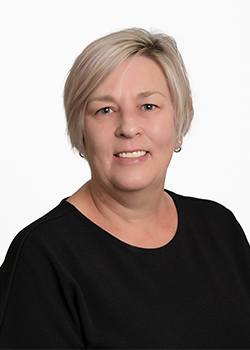The risks in hunting for higher returns

How much investment risk are you willing to take?
If you've ever used a financial adviser, it's one of the first questions you'll be asked when establishing your overall investment strategy.
Because your tolerance for risk will ultimately determine the types of assets an adviser will recommend for you to invest in.
It's a question all investors should be considering right now, at a time when some are taking on more investment risk than ever before, both on global share markets and bond markets.
In essence, what's occurring is being driven by a combination of forces.
Record low interest rates are spurring some investors to take on more risk by buying into riskier securities and other types of investment products offering higher returns. Economic factors, including the massive government stimulus programs underway linked to COVID-19, are also playing a hand in the activity.
And, at the same time, there has been an escalation in share market trading activity based around speculation.
How speculators are driving markets
In recent weeks there has been a noticeable spike in speculative investment activity on share markets.
This is primarily being driven by smaller investors (operating in unison within large groups) buying into companies on the basis of rumours gleaned from online investment forums and social media channels.
In some cases, frenzied buying activity by these speculators has seen some company share prices soar and then fall back sharply, and very quickly, after heavy selling. In many cases, investors who have rushed in blindly have been left wearing large losses when share prices have dropped suddenly.
Companies in the U.S. technology sector have been the prime targets of this type of speculation, as have companies involved in biotechnology.
Although not as pronounced in Australia, there has also been a rush of investor capital into buy-now, pay-later technology companies and into miners associated with the production of battery metals.
The sudden spike in first-time online broking account openings here following last year's sharp COVID-induced market correction spurred the Australian Securities and Investment Commission to issue a warning around the risks of trying to time markets.
The same applies to investors speculating on companies without doing proper research.
A high-yield bonds surge
Bonds are generally considered to be less risky than shares, but recent heavy buying activity in what's known as the "high yield" sector of the bond market has also drawn attention to potential investment risks.
High-yield bonds are bonds issued by companies with credit ratings below what credit ratings agencies regard as investment grade.
For a bond issue to be regarded as investment grade, it needs to be rated between AAA (the highest rating) and BBB-minus. Issues classified as high yield are rated between BB-plus and C-minus, with companies at the lower end of the spectrum carrying a higher risk of credit default.
Companies with low credit ratings may use the bond market to raise capital from investors, because they're unlikely to secure funding from lenders such as banks.
For investors willing to take on the risk of lending their money, the bond issuing companies typically pay a higher income return than the investment grade bonds largely issued by governments and companies with better credit ratings.
Which is where current economic events are coming to the fore. The combination of record low interest rates and government financial support measures have made it extremely attractive for companies to refinance their borrowings, even those with low credit ratings.
In effect, borrowing money has never been cheaper. At the same time, investors wanting higher income returns than they've been able to get by buying into lower-risk government bonds and investment-grade credit have been willing to buy into high-yield bond issues.
That's largely because low interest rates mean companies have a much better chance of servicing their debt payments, and because government stimulus programs have reduced the risk of many companies going into financial default – at least for now.
But the latest twist for investors has come because of the surge in demand for high-yield bonds. This has driven up their prices, which in turn has resulted in their investment yields falling to the lowest levels ever seen.
Basically, when market prices rise yields decline. Yields are falling, so investors are effectively getting less return for taking on higher risk. And the inherent risks in holding high-yield bonds, if a company does go into default, remains.
It's another example of potential investment risks.
Risks versus reward
Taking risk is part and parcel of investing, because wherever you invest there are always factors that can lead to potential financial losses.
There are a wide range of potential investment risks, including market risk, credit risk, inflation risk, liquidity risk and geopolitical risk (generally risks associated with specific countries and regions).
Understanding risks, why some assets are lower risk than others, and determining your own risk tolerance, are all fundamental aspects in mapping out your investment goals and strategy.
In basic terms, the higher the potential reward, the higher the risk of losing money. The lower the risk, the lower the potential reward.
Diversification within asset classes, and across different asset classes, remains the most powerful strategy for managing traditional risks.
By Tony Kaye
Senior Personal Finance Writer, Vanguard Australia
23 Feb, 2021
vanguard.com.au







